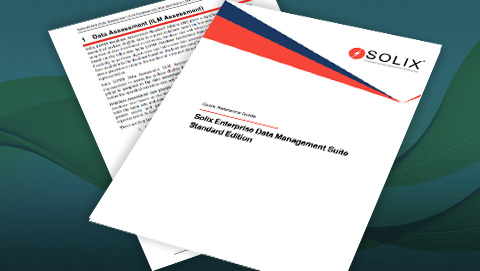GLBA
What is GLBA?
The Gramm-Leach-Bliley Act (GLBA) is a federal law enacted to safeguard consumers’ financial privacy. It safeguards the privacy of financial information held by banks, credit unions, and other institutions. It mandates secure data handling, grants access and correction rights, and more. Adherence to these requirements is paramount for any organization handling Non-Public Personal Information (NPPI) in the United States.
Overview of GLBA
- Law: Gramm-Leach-Bliley Act
- Region: U.S.A
- Signed On: 12-11-1999
- Effective Date: 2001
- Industry: Financial institutions
Personal Data Under the GLBA
The Gramm-Leach-Bliley Act focuses on a specific type of personal data called nonpublic personal information (NPPI). Any information a financial institution collects about you that can be used to identify you and is related to your finances falls under NPPI, protected by the GLBA. NPPI refers to information that is:
-
- Personally identifiable: It can be used to identify a specific person.
- Financial in nature: It relates to a consumer’s finances.
- Not publicly available: It’s yet to be known by the general public.
Here’s a breakdown of what NPI typically includes under the GLBA:
|
|---|
Key Components the GLBA
- Financial Privacy Rule (Title V):
- Financial institutions must disclose their information-sharing practices to customers through a privacy notice.
Provides consumers the right to opt out of certain information-sharing practices with non-affiliated third parties.
Outlines specific requirements for sharing customer information with affiliates.
- Financial institutions must disclose their information-sharing practices to customers through a privacy notice.
- Safeguards Rule (Title V):
- Mandates implementing comprehensive information security programs to protect NPPI. These programs must address administrative, technical, and physical safeguards.
- Fair Credit Reporting Act (FCRA):
- Oversees the precision and confidentiality of consumer credit reports.
Provides consumers with specific rights to access, dispute, and correct inaccuracies in their credit reports.
- Oversees the precision and confidentiality of consumer credit reports.
Data Protection Principle
The Gramm-Leach-Bliley Act establishes three crucial data protection principles that financial institutions must uphold to safeguard nonpublic personal financial information (NPPI)
- Confidentiality: This principle demands that NPPI be protected from unauthorized access, use, disclosure, or destruction. They must implement robust security measures to prevent unauthorized access to or mishandling sensitive information.
- Integrity: This principle emphasizes the accuracy and completeness of NPPI. This involves establishing processes for data verification, error correction, and regular data quality checks.
- Availability: Guarantee authorized users have timely and reliable access to NPPI for legitimate business purposes without compromising security.
Rights Under the GLBA
- Access: Consumers have the right to access certain types of NPPI held by financial institutions. This includes your name, address, account numbers, transaction history, and credit report.
- Correction: Consumers can request a correction if any NPPI held by a financial institution needs to be updated or completed.
- Opt-out: Consumers can decline a financial institution’s sharing of their NPPI with nonaffiliated third parties for marketing purposes. However, this right has some exceptions, such as sharing information with companies that provide services to the financial institution or with your consent.
Who Needs to Comply the GLBA?
The Gramm-Leach-Bliley Act (GLBA) applies to financial institutions operating in the United States and its insular possessions, including Puerto Rico, Guam, American Samoa, the Virgin Islands, and the Northern Mariana Islands.
- Financial institutions: This includes banks, credit unions, investment firms, insurance companies, mortgage lenders, loan servicers, and other organizations directly providing financial products or services to consumers.
- Third-party service providers: Any non-financial company handling NPPI on behalf of financial institutions falls under GLBA compliance. This includes data processors, cloud service providers, payment processors, marketing agencies, and law firms handling financial transactions.
Exceptions
- Certain exemptions exist for small financial institutions with limited assets and customer bases.
- Limited sharing for specific business purposes and with affiliates.
How to Comply with the GLBA?
- Implement a comprehensive information security program.
- Regularly review and update information security policies and procedures.
- Conduct employee training on best practices for privacy and security.
- Implement data masking methods to safeguard confidential data.
Noncompliance Fines
- Noncompliance Penalties: Fines for violating GLBA vary depending on the specific provision and intent. However, they can range from $100,000 per violation for institutions to $10,000 per violation for individual officers and directors.
- Additional Penalties: In addition to fines, noncompliance can lead to injunctions, cease-and-desist orders, and even imprisonment for individuals in cases of willful violations.
Compliance Authority
- Federal Trade Commission (FTC)
- Securities and Exchange Commission (SEC)
- Office of Comptroller of Currency (OCC)
- Federal Deposit Insurance Corporation (FDIC)
- National Credit Union Administration (NCUA)
In conclusion, understanding the Gramm-Leach-Bliley Act (GLBA) and its intricacies is crucial for financial institutions and their service providers to navigate the complex landscape of data privacy and security. Implementing robust information security programs, employee training, and leveraging data security solutions like data masking are key steps toward achieving and maintaining GLBA compliance. Remember, proactive measures minimize the risk of hefty fines and foster trust and transparency with your customers.
FAQs
Does GLBA apply to all my financial institutions?
The GLBA applies to most financial institutions in the United States that offer consumers financial products or services. This includes banks, credit unions, insurance companies, investment firms, and some non-traditional financial institutions like loan providers.
Does GLBA apply to data breaches?
While GLBA doesn’t have specific data breach notification requirements, some provisions might apply depending on the severity of the breach and the sensitivity of the exposed data. Other regulations also apply to data breaches.
Does GLBA apply to foreign financial institutions?
Generally, GLBA applies to US-based financial institutions. However, if a foreign institution is in the US and offers financial products or services, it must comply with some aspects of GLBA.
How does GLBA differ from data privacy laws like GDPR or CCPA?
GLBA focuses on protecting financial information, while GDPR and CCPA are broader data privacy laws. Although some overlap can occur, they have different requirements and enforcement mechanisms.





